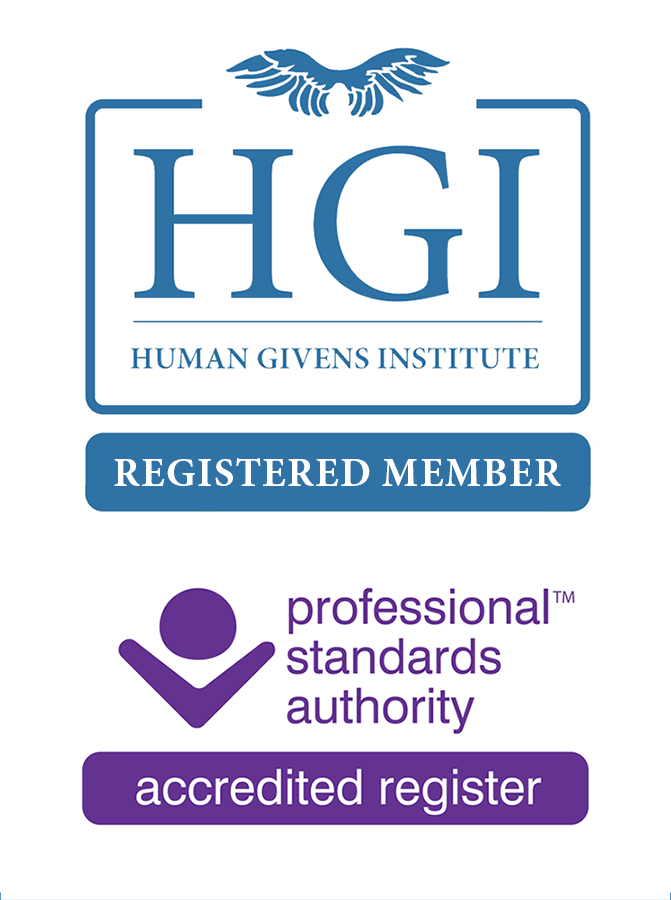What are the ‘Human Givens’?
Human Givens
In the last twenty five years or so we have come to a new and deeper understanding of the ways in which the human mind works, and how to help it heal. Two innovative psychologists, Joe Griffin and Ivan Tyrrell, developed important new organising ideas and theories to enable the first ever scientific approach to understanding the human mind, and defining the emotional needs with which we are all born. Helpfully, they have also given us a clear idea of the tools with which we can meet those needs, and how to fix things when our inbuilt ‘system’ does not seem to be working at its best. Their work has given rise to what is now known as the human givens approach to psychotherapy, where the focus is on helping each individual to develop their skills so they can meet their own emotional and physical needs with the innate resources with which they were born.
Interestingly, those ideas are now reaching into the more enlightened sectors of the corporate world and informed areas of public life. See here for an interesting video on developments in the corporate and public sector.
Our ‘given’ needs naturally look for fulfilment through the ways we interact with our environment and through the use of the resources that nature gave us. However, when our emotional needs are not fulfilled, or when our resources are being used incorrectly, we may suffer considerable distress. Of course, those resources may have been damaged in some way by events in our lives over which we had no control, so we may need help in developing those resources and ‘repairing’ the damage that was done.

There is now widespread agreement as to the nature of our emotional needs.
- Security — safe territory and an environment which allows us to develop fully
- Attention, to give and receive it — a form of nutrition
- A sense of autonomy and control — having the ability to make responsible choices
- Being emotionally connected to others
- Feeling part of a wider community
- Intimacy — to know that at least one person accepts us totally for who we are
- Privacy — opportunity to reflect and consolidate experience
- Sense of status within social groupings – acceptance within the tribe
- Sense of competence and achievement – feelings of success
- Meaning and purpose — which come from being stretched in what we do and think
Along with physical and emotional needs, we have been given tools to help us meet those needs.
- The ability to develop complex long-term memory, which enables us to add to our innate knowledge, and to learn
- The ability to build rapport, to empathise and to connect with others
- Imagination, which enables us to focus our attention away from our emotions, to use language and to problem solve more creatively and objectively
- A conscious, rational mind that can check out emotions, and which can question, analyse and plan
- The ability to ‘know’ — that is, to understand the world unconsciously through metaphorical pattern matching
- An observing self — that part of us that can step back, be more objective and be aware of itself as a unique centre of awareness, separate from intellect, emotion and conditioning
- A dreaming brain that preserves the integrity of our genetic inheritance every night by metaphorically defusing expectations held in the autonomic arousal system because they were not acted out the previous day.
Over hundreds of thousands of years our ‘human givens’ underwent continuous refinement as they drove our evolution forwards. They could perhaps be thought of as inbuilt, biological templates that continually interact with one another and (in undamaged people) look for their natural fulfilment in the world in ways that allow us to survive and thrive together as individuals in a great variety of different social groupings. It is the way those needs are met, and the way we use those wonderful resources, that determine the physical, mental and moral health of any individual. As such, the human givens are the benchmark position to which we must all refer in education, in mental and physical health and in the way we organise and run our lives at work, at home and in our leisure pursuits. When we feel emotionally fulfilled and when we are operating effectively within society, we are more likely to be emotionally and mentally healthy. But when too many innate physical and emotional needs are not being met in the environment, or when our resources are used incorrectly, unwittingly or otherwise, we suffer great distress, and so do those around us.
From the therapist’s couch to the classroom, from the HR department to the social worker, and from the prison to the residential home each and every person concerned with the emotional and mental well-being of others should be addressing whether or not their innate needs are being met by their given resources. Much of our work is in helping people to develop the necessary skills to ensure they are able to do exactly that.